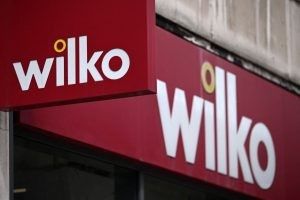THE billionaire owners of B&M are believed to be in the running to buy collapsed retail chain Wilko, which announced last week it was closing its doors, putting 400 stores and 12,500 jobs at risk.
B&M, which is owned by brothers Simon, Bobby and Robin Arora, has been told by Wilko’s administrators, PwC, that they have until Wednesday (16) to submit any bids for a takeover, following a reported lack of interest from trade buyers, reports said.
Other reported interested parties include The Range, Poundland and Home Bargains.
“The Wilko administration offers further opportunity for B&M to take market share,” analysts at Deutsche Bank predicted this week, forecasting a £200 million sales boost.
Wilko store closures could result in up to nine million square feet of empty shop space, according to the Local Data Company. A third of stores are in the southeast, East Midlands and northwest regions.

The potential purchase of Wilko helped B&M end Monday at the top of the FTSE 100.
B&M was a regional chain with only 21 stores when it was acquired by Cambridge-educated law graduate Simon and Bobby in December 2004.
It has now grown to more than 1,100 stores across the UK and France.
Their father emigrated to the UK in the 1960s from New Delhi after being “almost penniless”, Simon has been quoted as saying. Their net worth now sets at an estimated £2.7 billion, according to the Eastern Eye Asian Rich List 2023, in which they ranked seventh among the 101 wealthiest British Asians.
After 17 years at the helm, Simon last year stepped down as CEO of the company, and was replaced by former Asda chief Alex Russo.
The Arora influence still remains at B&M, with Bobby having agreed to a £16m “golden handcuff” deal last month to keep him with the company until at least 2026.
At the Asian Business Awards in 2022, Simon described his journey as a “classic, second-generational immigrant story.”
He told the gathering in central London, “As I reflect on the modest success we’ve had, we’ve taken what I think of the best parts of our parents’ values, but we’ve dismissed those that we see as being a hindrance.
“What I rejected, and I think works for us was a willingness to delegate, not to have a value that said, ‘our business has to be 100 per cent owned by us’.
“I’ve run B&M as a family business. I’ve owned it 50:50 with private equity, and I now run it on behalf of institutional shareholders.”
He added, “If I had stayed true to my parents’ values, I would probably be running a smaller business because there was some risk aversion, there was some reluctance to invest in talent around you.
“So, I think you take the best from your culture, but then you push back and challenge what you think doesn’t necessarily work for you.”

